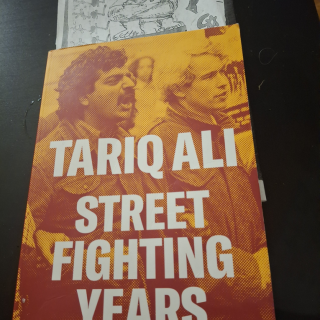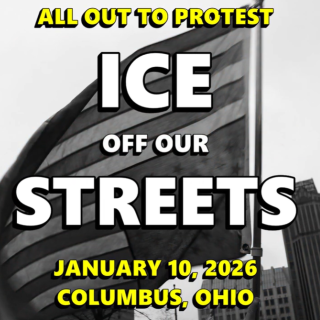Cincinnati Goddamn is a documentary which focuses on two of the 15 black men who were killed by the Cincinnati Police from 1995-2001, the Cincinnati Riots and the reforms that eventually transpired. The reforms included an opening of dialogue between the CPD, ALCU, Black United Front and the community called the Collaborative. It also led to to Community Problem Oriented Policing which is a process that aims to be proactive in problem-solving vs. having the police exist as a hostile entity.
Police were instructed to use less lethal weapons. A Civilian Review board was established.
Obviously, the past couple of years have seen deaths involving the police which has led to both protests and riots throughout our country so the relevancy of Cincinnati Goddamn is obvious.
I think another importance of this film is the presentation of Roger Owensby and Timothy Thomas and their families. The humanization of the victims and their families is an important step in combating that little racist voice in the back of people’s brains that can make the difference in decision making that will determine both individual and our country’s future in general; Whether it’s on the street, in the the indictment room, or in the voting booth.
Cincinnati Goddamn was co-directed by Paul Hill and April Martin. Martin was a production assistant at a Cincinnati TV station before making Cincinnati Goddamn, She is now a social activist who has made documentaries about Hurricane Katrina and Health issues facing underprivileged women.
Paul Hill is a filmmaker, editor and producer who has worked on award winning documentaries like 2002’s, “Myth of Father.”
Both co-directors are part of the Wexner Center’s Film department. Cincinnati Goddamn will be presented at the Wexner Center June 2nd at 7pm. Hill, Martin, Professor Rhonda William and Cincinnati activist Iris Roley will be present for a discussion.
I suggest reading How to Reform a Police Department in the Atlantic, and watching Cincinnati Goddamn.
How important was the presentation of the police victims when you were editing this movie vs. sensationalizing the riots?
Cincinnati Goddamn is a movie that gives voice to the community and to the victims. Police-community relations in neighborhoods like Over-The-Rhine, in Ferguson or those neighborhoods in Baltimore is very real and very tense. With this film we wanted to convey the “us vs. them” vibe that these communities feel and really drive that emotion through the film.
Structurally, the riot sequence is meant to not only show what went on, but to serve as an exclamation point in the story in terms of the boiling up of tensions. MLK said that “A riot is the language of the unheard…”
Long-term economic disparities and institutionalized racism play a key role in riots. How do you view the "these people are destroying their own communities" sentiment that always is heard after a injustice boils over?
Well, the injustice in the communities in the first place is exactly where the destruction starts! People are protesting against the injustices in their communities and at a certain point it becomes about survival.
People of color all across the country (world) are dying in unjust ways every day. When racial injustice and racial disparities continue to go unpunished by the law, people will protest, violently if necessary. And it’s actually been revealed that the media over sensationalizes these rioting events, showing the most destructive aspects when in reality most of the people protest peacefully. It’s usually a very small number of people doing the looting, and those people are often from out of town.
Do you think the Department of Justice would have stepped in without riots? Does the Department of Justice get involved without riots?
In the case of Cincinnati, probably not. No police department likes it when the feds come in and tell them what to do or tell them what they’re doing wrong. I’m sure if they could have resolved the issue without calling the DOJ, they would have.
What is the Collaborative?
The collaborative agreement was formed between the ACLU, the Black United Front, the FOP and the city in order to respond to ongoing mistreatment by the police to community members. It was an attempt for all sides to come together and work through the difficult issues. The initiative was primarily to build trustful and respectful relationships between the police and the community and to make many important changes to policing, such as using tasers more, better training and more oversight.
You're film sites training cops to use mase and tasers first helps decrease fatal interactions because guns kill people. Is this the best solution or just logical to keep people living?
It is A solution, not THE solution of course. It helps save lives obviously, but it’s been reported that officers resort to the tasers quickly because they know there will probably not be lethal consequences.
The police were actually charged in the Samuel Dubose (A Black man killed recently by police in Cincinnati.) shooting. How much progress?
Of course this was the right thing to do in that case. If Joe Deters had not indicted him there would have been major tensions in Cincinnati and we would be having a very different conversation now. But let’s not forget that Joe Deters was the prosecutor during the early period when the 15 black men were killed by the police in Cincinnati. Where was he then? The problem isn’t just with the police. It’s the prosecutors. Robert McCulloch, the St. Louis County prosecutor who completely exonerated Darren Wilson for Michael Brown’s death in Ferguson, perhaps has his own biases. His father was a policeman and was killed by a black man. The prosecutors choose what evidence the grand jury hears and it’s hard to believe that biases don’t play a role in that.
I know we’re dealing with 400 plus years of problems when trying to fix our police departments. So there is no simple answer; however: What is best step a person could take who is interested in a solution?
At the core of all this, as Michelle Alexander says in the film, is a failure of us as a nation to extend genuine care, compassion and concern to people of other classes and other races. This extends to not only the police departments, but to the prosecutors, judges and our politicians.



